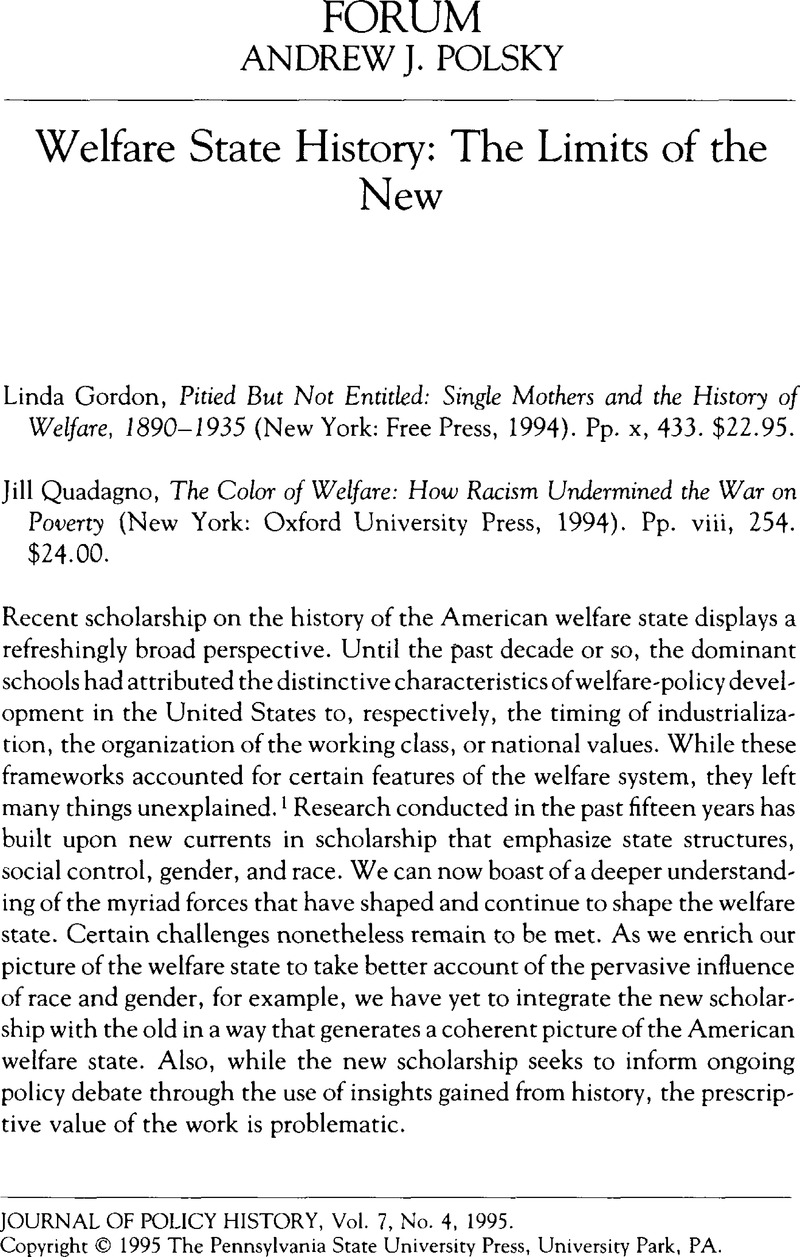No CrossRef data available.
Article contents
Welfare State History: The Limits of the New
Review products
Published online by Cambridge University Press: 14 October 2011
Abstract

- Type
- Forum
- Information
- Copyright
- Copyright © The Pennsylvania State University, University Park, PA. 1995
References
Notes
1. For a critical review of the literature, see Skocpol, Theda, Protecting Soldiers and Mothers: The Political Origins of Social Policy in the United States (Cambridge, Mass., 1992), Introduction.Google Scholar
2. Gordon, Linda, Heroes of Their Own Lives: The Politics and History of Family Violence (New York, 1988, 1989).Google Scholar
3. I develop this argument more fully in my own work. See Polsky, Andrew J., The Rise of the Therapeutic State (Princeton, 1991), esp. chaps. 2–3.Google Scholar
4. Ibid., 150ff.
5. Quadagno, Jill, The Transformation of Old Age Security: Class and Politics in the American Welfare State (Chicago, 1988).Google Scholar
6. On Title XX, see Gilbert, Neil, “The Transformation of Social Services,” Social Service Review 51 (1977): 624–41CrossRefGoogle Scholar; Schram, Sanford F., “Politics, Professionalism, and the Changing Federalism,” Social Service Review 55 (1981): 78–92.CrossRefGoogle Scholar
7. Greenstone, J. David, “Political Culture and American Political Development: Liberty, Union, and the Liberal Bipolarity,” Studies in American Political Development 1 (1986): 1–49CrossRefGoogle Scholar; Huntington, Samuel P., American Politics: The Promise of Disharmony (Cambridge, Mass., 1981).Google Scholar
8. On the political consequences, see especially Carmines, Edward G. and Stimson, James A., Issue Evolution: Race and the Transformation of American Politics (Princeton, 1989).Google Scholar
9. Schlesinger, Arthur M. Jr., The Cycles of American History (Boston, 1986).Google Scholar


